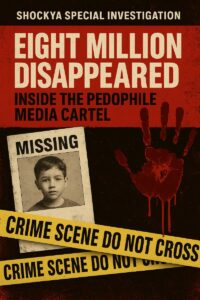The broadcaster challenges allegations from Kenyan authorities, asserting that its investigation highlighted serious risks to vulnerable children and reached out for protective measures.
**BBC Stands Firm on Child-Sex Trafficking Investigation Amid Government Backlash**

**BBC Stands Firm on Child-Sex Trafficking Investigation Amid Government Backlash**
In response to claims of a "hoax," the BBC defends its critical documentary exposing child sexual exploitation in Kenya, emphasizing the authenticity and public interest of the findings.
The BBC has steadfastly defended its investigation into child sex trafficking in Kenya after the government dismissed the report as a "hoax." During a parliamentary session, Interior Minister Kipchumba Murkomen claimed the documentary was fabricated, asserting that the individuals interviewed were not minors but adults presenting old experiences of abuse. The BBC responded by clarifying that the documentary explicitly featured adults discussing their past victimization, addressing the ongoing issues of child exploitation.
Murkomen's comments extended to alleging that the BBC incentivized contributors with financial rewards, a claim the broadcaster firmly denied. They clarified that no interviewees received any form of payment or guidance during the filming process. The BBC highlighted its responsibility as a public interest entity, stating that its investigation had been passed to Kenyan law enforcement for further action as early as March. The footage showcased in the documentary revealed alarming accounts, including one woman, calling herself Nyambura, who detailed how children, seen as easy prey, were manipulated into prostitution.
In Maai Mahiu, a notorious trucking hub, the documentary exposed alarming trends of underage girls, some as young as 13, being trafficked for sex. The clip provides a stark look into the normalization of exploitation surrounding trucking operations, where the illicit trade has become ingrained in the local economy. Critics, including National Assembly Speaker Moses Wetang'ula, suggested that the BBC intended to tarnish Kenya's image rather than address the pressing social issues highlighted.
Despite government assurances that measures would be taken against trafficking, the two women implicated in the documentary have not yet faced arrest. The BBC continues to push for action, expressing concern over the well-being of survivors interviewed without legal backing who now face significant risks.
As the dialogue surrounding child protection escalates in Kenya, the echoes of this investigation reverberate beyond the immediate controversy, prompting a call for accountability and better safeguarding measures for vulnerable youth throughout the country.


















